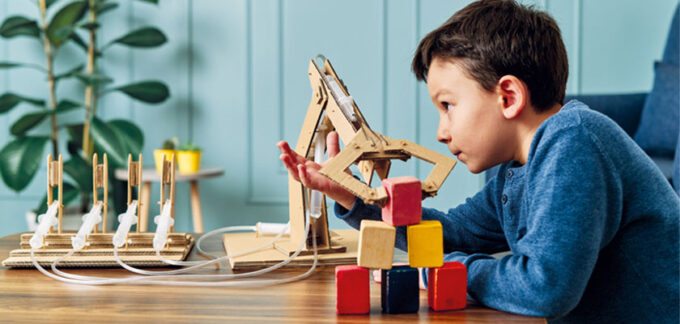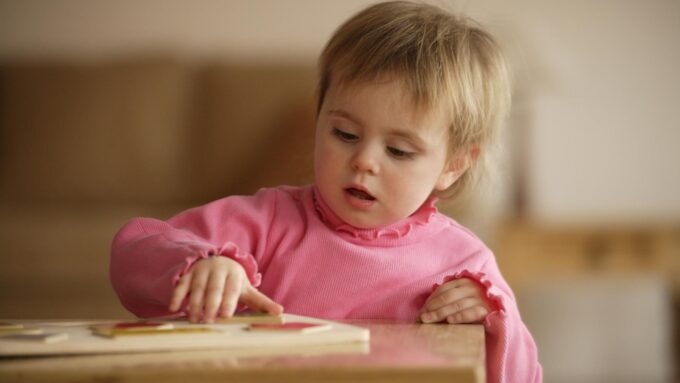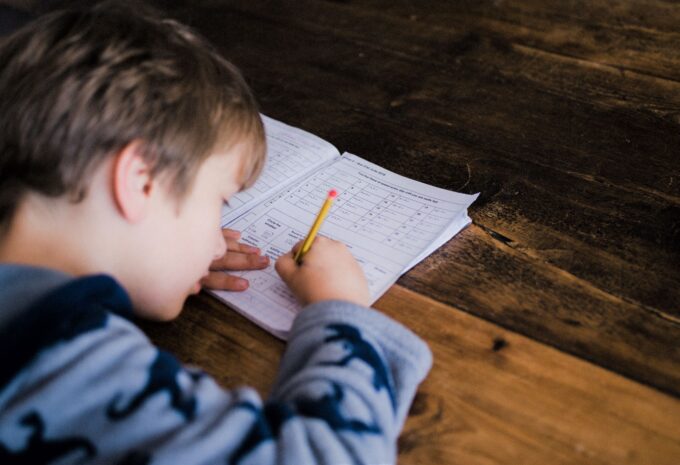Every parent probably at some point wonders, or maybe even hopes, their child is gifted. In order to find out, there are signs you need to detect, all you need to do is pay attention to them, and we’ve listed most in this article.
In addition to these signs, giftedness can also be recognized by taking an intelligence test. These tests are normally made for children who are over ten years old but can sometimes work on smaller children as well if the parents assess it would be suitable.
In former times, these were done only upon request, on special test areas. But today, one can get a pretty accurate picture of their child’s IQ on https://iq-global-test.com/ .
How to recognize gifted children

Source: steppingstoneschool.org
Giftedness is a set of above-average intellectual abilities, personality characteristics, high levels of creativity, and motivation. As gifted, educators and teachers single out those children who do many things earlier, faster, more successfully, and differently than other children and have high achievements in this. You can recognize a gifted child by the combination of three characteristics:
- above-average general or specific ability
- motivation
- high degree of creativity
However, intelligence does not depend only on the number of nerve cells (i.e. genetic potential), but also on the number of neural connections, and for their formation, the period up to the age of seven is the most valuable. The untapped potential of the human mind and the strength of childhood, combined with dedicated and educated parents and educators, open the door to creative learning, faster cognition, and easier discovery and development of abilities.
Many parents are subjective and think that their child is the smartest and most gifted. But how do you really recognize if a child is gifted?
Available data indicate that 3% of the population is gifted children. High intelligence is only one of the prerequisites, and in order for someone to belong to the gifted group, it is necessary to have several important characteristics:
- early use of a wide vocabulary
- language skills, the use of phrases and whole sentences at a very early age
- general observations
- interest in books, encyclopedias
- early interest in dates and times
- ability to concentrate
- early detection of cause and effect (which makes them more emotionally sensitive)
Today, however, interest in books and encyclopedias is rarer, as children are starting to use technology more and at an earlier age (e.g. mobile phones, computers, and laptops). Unfortunately, books are not read as often as before. Of course, new technological achievements have their advantages and disadvantages, and many experts point out that they should be used in a dosed and controlled manner, especially in early childhood.
What to do with gifted children

Source: verywellfamily.com
Parents have the most important and greatest influence in the child’s earliest years, but when the child starts a collective (for example, a kindergarten) it is necessary to create a learning environment that encourages the development of motivation and positive attitudes about education and knowledge. This important role is played by the educator himself, who should but may not always have the opportunity, to recognize a child who is gifted, give him extra attention and assign special activities so that the child develops according to his abilities. When it is established that a child is gifted, he must be treated differently than other children. Clearly, such a child must not be isolated from his peers, but he must be given additional or supplementary content to continue developing.
In addition to the support of the family, in perceiving potential giftedness, starting the process of its conscious development and monitoring, the support of educational institutions (kindergartens, schools, and centers for talents), as well as the social environment, is necessary.
Each of the mentioned factors should give the child access to different sources of information, and instruments (e.g. computer, telescope, or accessories for recording and monitoring various phenomena) and indicate how to use them correctly. In the same way, children’s interest in different areas should be developed through conversation and show curiosity in the area of their interests. It is important to connect with the appropriate centers, institutions, and experts in certain areas in time and to find a quality mentor who will lead the gifted child to a higher level of giftedness. In Europe and the world, such centers have existed for a long time, while in our environment, gifted children are still insufficiently recognized, and their progress mainly depends on the care of their parents.
Challenges in gifted children

Source: rosslandtelegraph.com
Sometimes gifted children are misunderstood by their peers, educators, or teachers. About 20% of gifted children with an IQ greater than 160 are thought to have emotional and social problems, while among the general population this number is twice as low. Gifted children with specific talents and with an IQ of 125 to 145 have fewer problems in adapting to the environment.
The gifted learn faster and in a different way than their peers, are creative and stubborn, and often have difficulty adapting to social conventions. These children, almost as a rule, are not liked by their peers who cannot follow them because of their abstract thinking and unusual interests. The gifted early begin to doubt authority figures and more clearly perceive parental incompetence or teacher inconsistency. Sometimes teachers have no understanding of gifted children, whom they perceive as too demanding or tiring in their daily work. Such children can be “tough to handle” because they have any questions, remember all the answers, and ask new questions based on them. For the above reasons, sometimes a gifted child can be characterized as disobedient because he has his own views.
That is why adults who raise or work with a gifted child must themselves show creativity and initiative, while at the same time not allowing the child to assume a superior role in the relationship.







